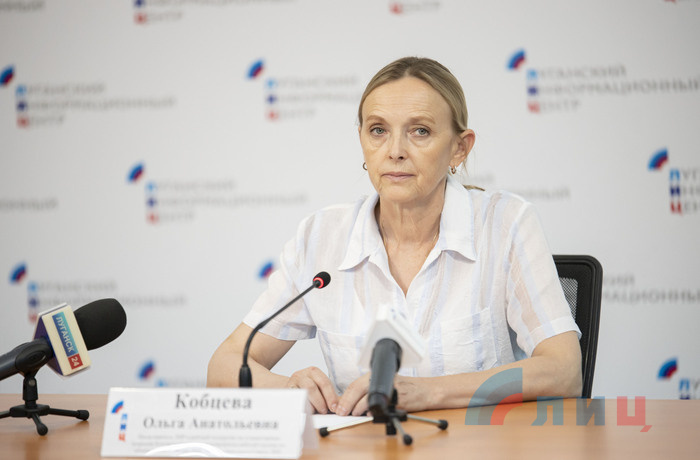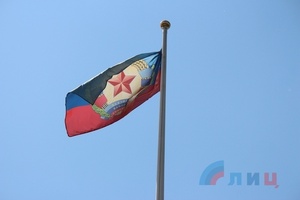
Ukraine trying to politicise missing persons search - Kobtseva
Ukraine is trying to politicize the search for the persons who went missing in the course of the Donbass conflict, Lugansk People’s Republic representative in the Contact Group humanitarian subgroup, head of the LPR working group on prisoner exchange Olga Kobtseva said at a press briefing at the Lugansk Media Centre.
“Bringing forward the technicalities (at the humanitarian subgroup session held via video conference) in finding out the fate of the missing persons shows that Ukraine is trying to politicize this theme, this rhetoric,” Kobtseva said.
“Ukraine is trying to play on the emotions of the grief-stricken people whose relatives went missing,” she said.
“We know that Ukraine has not fulfilled its obligations in the detainee issue; the prisoner exchanges in December 2019 and April 2020 are not regarded as completed as criminal prosecution has not been dropped against the persons released on recognisance. LPR has 35 such persons; Ukraine has not made a single move up to date towards dropping criminal prosecution against them,” the LPR representative said.
Earlier, Kobtseva said that Kiev had been doing everything to foil the work on the search for missing persons.
Prisoner exchange is a key point of the Minsk Agreements which envisions the use of the all-for-all principle. The commitment to the principle was confirmed at the Normandy Four summit (France, Germany, Russia and Ukraine) in Paris in early December 2019. It was followed by a large prisoner exchange between Donbass and Ukraine on December 29, the first in two years. The People’s Republics handed over 76 people to Kiev and the latter handed over 124. During the prisoner exchange on April 16, 2020, Kiev passed 14 people to the LPR and the DPR and got 20.
The Ukrainian government launched the so-called anti-terrorist operation against Donbass in April 2014. Conflict settlement relies on the Package of Measures for the Implementation of the Minsk Agreements, signed on February 12, 2015 in the Belarussian capital by the Contact Group members and coordinated by the Normandy Four heads of states (Russia, Germany, France and Ukraine). The UN Security Council approved the document by Resolution No 2202 of February 17, 2015 and called upon the parties to ensure its implementation.
comprehensive ceasefire, withdrawal of all heavy weapons from the contact line, starting a dialog on reconstruction of social and economic ties between Kiev and Donbass. It also envisages carrying out constitutional reform in Ukraine providing for decentralization and adopting permanent legislation on a special status of certain areas of the Donetsk and Lugansk regions.
To facilitate the work of the Contact Group, four working groups were set up under its aegis to deal with issues of security, politics, return of internally displaced people and refuges, as well as with social, humanitarian, economic and rehabilitation issues.*i*t



